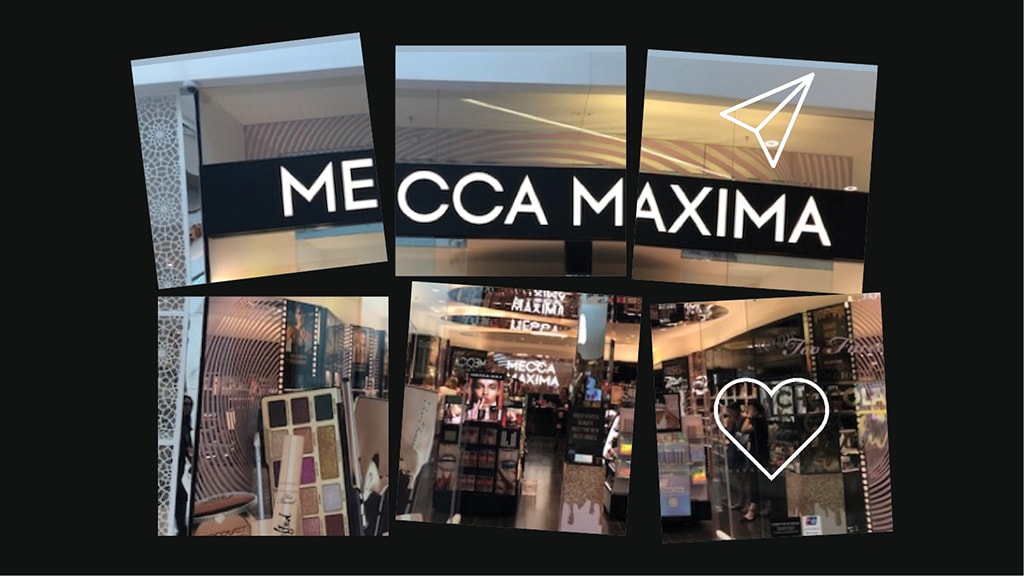This is what the new face of retailing looks like

Dexus
‘Experiential retailing’ means different things to different people. Traditional retailers view it as the solution to the online threat. Shoppers see it as improving the face of shopping centres, offsetting the decline of department stores with innovative new speciality outlets and entertainment options. As for commercial property investors, well, we’ll get to that.
If you don’t fully understand the term you’re not alone. Let’s explore it through the experience of Jo Horgan, founder of retail brands Mecca Cosmetica and Mecca Maxima.

Twenty years ago, Horgan opened her first store in Melbourne’s South Yarra with an “expert edit of seven iconic global beauty brands”. Unfortunately, she mislaid her first day’s takings of $1,873. Later found in a cupboard behind a sink this was a minor setback.
In 2003, Mecca launched its own cosmetics line. In 2007, the company expanded to New Zealand and in 2010 launched Mecca Maxima in Melbourne Central, “showcasing a glam squad of over 3,000 products from 65 brands including cult favourites such as NARS and Smashbox and international bestsellers such as Bobbi Brown and YSL.”
Mecca Maxima, with over 80 sales locations, is now in almost every flagship shopping centre in the country. The brand sees itself as “bringing the beauty lover their one stop beauty destination with the hottest makeup brands, trends and expertise in a glamorous and interactive environment”.
People visit the stores for the range and edgy labels, the in-store makeovers and “Maxima Beauty Experts” and exclusive events, masterclasses and VIP events for customers.
What gets them there is an active social media presence that includes 437,000 Instagram followers (Myer, in comparison, has just over 300,000), plus another 200,000 on Facebook, a content marketing site calledThe Mecca Memo, a YouTube channel called MECCA Beauty Junkie and MECCA Beauty Loop, a loyalty program that offers “more of the products you love, new samples to try, and fun in-store experiences.”
You may have heard of “omnichannel retailing”. Well, this is what it looks like; in-store experiential retailing combined with online marketing that connects with a finely targeted audience across multiple channels.
Mecca’s singular focus on cutting edge brands, in-store experiences and educational marketing through social media drives store and website traffic. The dedication and skill this requires cannot be matched by department stores, nor can it be physically replicated by online retailers. Horgan has built a business that occupies and leverages the best of both worlds.
Nor is Mecca out on its own. Culture Kings is following a similar path in streetwear, agglomerating global brands, offering in-store barbers and DJs while customers shop. Dr Martens, Nike and Reebok have created stores where customers can experience their products in-store before making a purchase.
Nike recently opened a store with a mini basketball court, a treadmill with screens simulating different outdoor runs, an enclosed soccer area and a customisation shoe bar where shoppers can personalise their Nike Air Force 1s. Then there’s Apple’s 500 global stores, known internally as “town squares”, where you can take free classes on coding, music and photography.
Omnichannel retailers prove that high quality bricks-and-mortar stores can integrate with online marketing to drive sales. So strong is the trend that once purely online stores are now developing a real-word presence. US eyewear retailer Warby Parker started life as a website but now has over 70 US stores. And Amazon, the world’s largest e-commerce business, now controls 460 Whole Foods supermarkets.
Retail landlords are facilitating the trend, doing away with outdated retail business models and embracing new ways to cater to the changing habits of shoppers. This has been most evident in the largest holding in APN’s AREIT Fund, Scentre Group, which is investing billions in improving customer experiences. As CEO Peter Allen recently noted:
“The key to the success of [Scentre Group’s] developments is creating places where people want to go, curating a diverse and engaging product mix and providing exceptional customer experiences making it easy to visit, engage, be entertained and to shop”.
Once considered a drawcard, the department stores’ footprint is being reduced at the expense of more service focused, specialty outlets like Mecca Maxima. The aim is to turn shopping centres away from their historically functional role towards more experiential offerings. This leads to more foot traffic and, ultimately, higher retailer demand for superior quality real estate.
This is great news for commercial property investors, painting a very different picture to the one portrayed in the media. The country’s leading shopping centres are buzzing with innovative retail concepts that use online channels to build store traffic. It’s this demand for retail space that will drive long term income growth and returns.
It gets even better. Historically, department stores and supermarkets were offered attractively-priced rents because the centres needed the foot traffic they bought. Now the space formerly leased to department stores at low margin rents is being leased to specialty retailers at higher price points.
Still, investors need to be picky. Flagship centres like Melbourne’s Chadstone and Westfield’s Sydney City and Chermside are well-positioned to adapt their offerings and charge higher rents for so doing. Building and maintaining in-demand destination shopping centres also requires a track record, access to capital and superior underlying real estate.
This is the competitive advantages that defines Australia’s best retail landlords, including Scentre Group, Vicinity, Mirvac, Stockland and GPT, all holdings in APN’s AREIT Fund. In fact, the locations of Mecca’s flagship stores are a good indicator of a shopping centre’s attractive demographics, high foot traffic and superior locations:

As at March 2018
Then there’s the hubbing effect, where the presence of high quality experiential retailers like Mecca attracts more retailers of a similar ilk. The end result is greater appeal to shoppers, a diversification of shopping centre cashflows and insulation for commercial property investors against the threat of online-only retailing.
Flagship destinations are also protected by the limited availability of suitable land and a tight planning regime that makes it almost impossible for competitors to get a foothold close to a centre that already exists.
Investors in our Fund are beneficiaries of the trend towards experiential and omnichannel retailing because it leads to higher occupancy levels and rental income growth in the country’s best shopping centres.
But for the lower quality centres, well, that’s a different story. They’re best avoided. In shopping centres as in many areas of life it’s best to stick to quality.
Looking for more real estate insights and analysis?
Visit the blog to access the latest analysis and insights from a specialist real estate investment manager.
This article has been prepared by APN Funds Management Limited (ACN 080 674 479, AFSL No. 237500) for general information purposes only and without taking your objectives, financial situation or needs into account.
5 topics
1 stock mentioned

Matthew is tasked with analysing and investing in Australian property trusts. He brings fundamental property knowledge, experience across a number of property sectors and a genuine interest in the AREIT sector.
Expertise

Matthew is tasked with analysing and investing in Australian property trusts. He brings fundamental property knowledge, experience across a number of property sectors and a genuine interest in the AREIT sector.
